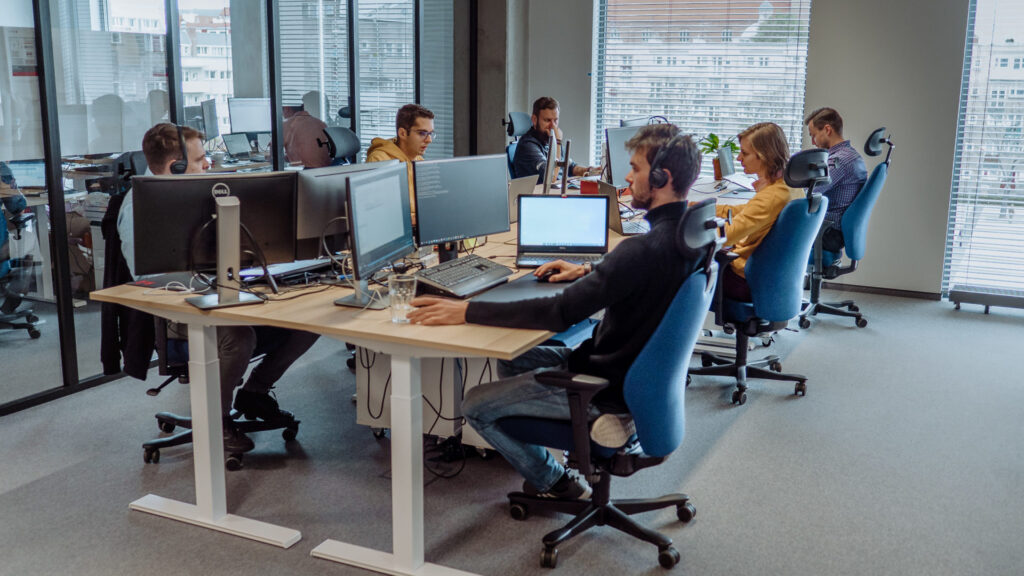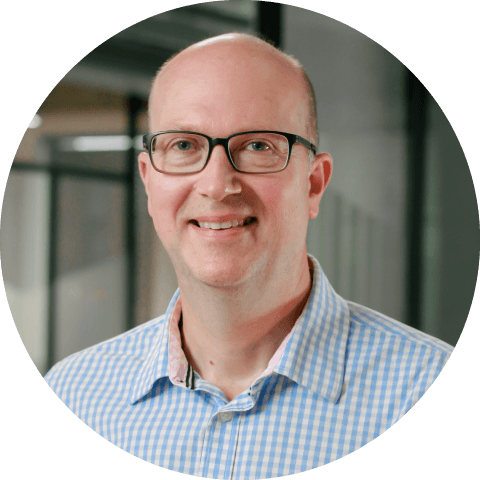Igor Krahne: We were ready to scale
Could you tell me a bit about yourself and your role in the Spyrososft – GOD partnership?
I am a CEO at GOD mbH, and we work together with Spyrosoft. It was quite hard for our project to grow in Germany, because we couldn’t find enough people there, so we moved our operations to a nearby country. We had already worked with Konrad [Weiske, CEO of Spyrosoft] during a different project before we started the joint venture in 2017, with the intention to grow.
As the project progressed, we also established GOD Nearshore SE, and we now have over 60 developers working on our projects.
Why did you consider the nearshore partnership model?
GOD mbH’s delivery model wouldn’t simply fit with the offshore type of collaboration. To be honest, we’ve tried offshore with a different company before, but it didn’t work for us.
As I mentioned before, I’ve briefly worked with Konrad in the past. Even though that project has been only partially successful, we still wanted to collaborate in the future. We already knew that we could combine our team’s business knowledge on how to develop enterprise projects for a particular automotive client with Spyrosoft’s technical excellence.
Have you considered any other companies before choosing Spyrosoft?
No, not really. It was all about the mutual trust between me and Konrad. We had quite a few conversations in the years between this past collaboration and the current one on how we want to organise working together, and that’s exactly how it all worked out in the end.
What factors were taken into consideration to choose the partner, and how do you perceive the collaboration with IT experts from Poland?
Personally, I think that the programmers in Poland are very ambitious, and they always want to try out new technologies, tools and methods. They want to experience these new techniques and technologies for themselves. They also want to deliver robust code because, first of all, they’re excellent developers.
What are – from your perspective – the benefits of the Build-Operate-Transfer engagement model? What is the most beneficial result of using it?
We do a lot of knowledge sharing between both sides, and it all works quite well. We have regular sessions every 14 days – with speakers from each company talking about a new technology. This is a win-win situation.
It’s also great to have a local team that’s not only able to complete all the tasks skilfully and on time but can also handle operational details as well as add and onboard new members. We can simply focus on sharing our domain knowledge and processes.
I also enjoy the collaboration on a more personal level; I really appreciate the fact that I’m able to hop in a car and visit Wroclaw and the team at any time.
Do you see any cultural differences between German and Polish developers?
When I came here, I noticed that Polish developers tend to be a bit less direct than German ones. Maybe they think that if they ask me something, they might be considered not good programmers or that they’re failing their team. But that’s just my personal impression. I’m not sure it’s really this way.
We try to mitigate these differences by inviting Polish developers to come to our headquarters in Germany as part of their onboarding process. As the project progresses, all cross-functional teams meet in one of the countries once a quarter.
I know that you’re working with large companies – did you have to adjust the security standards and procedures for Poland?
Many of our customers actually have their own security audit teams, so we had all of our delivery sites – including the one in Wroclaw – audited by their specialists. In the new Spyrosoft office, some of the security assets were already in place, including a separate entrance and a secure server room.
Why did you decide to go through the Transfer stage of the BOT model and set up the GOD Nearshore SE in Poland?
We were simply ready to scale at one point into the collaboration. It was also related to other business relationships we have. We wanted to show our customers how quickly we can get new teams on board. In Germany – with its limited pool of developers – it would never be possible to set up a team in 1 – 2 months.
What advice would you give to someone who wants to find an ideal technological partner?
I would recommend visiting several companies and talking to them in person. Business partnerships, in general, are about building long-term relationships and trusting each other, otherwise, the project will not work out in the end. You can’t really replace these with complex procedures, so look for a personal connection first.
Case Studies
See other success stories of our clients
Build Operate Transfer



